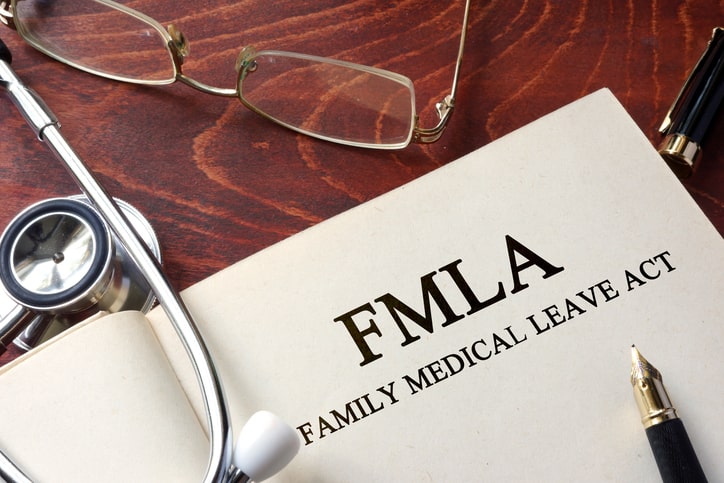The Family and Medical Leave Act (FMLA) is a critical piece of legislation that provides eligible employees up to 12 weeks of unpaid, job-protected leave per year for specified family and medical reasons.
While the FMLA is seemingly straightforward, confusion often arises due to the specific and multifaceted eligibility criteria that must be met. Factors such as the size and type of the employer, the employee’s work hours in the previous year, and the duration of their employment can complicate understanding and verification of coverage.
Additionally, differing interpretations of what constitutes a “serious health condition,” the requirements for medical certification, and the conditions under which intermittent leave can be taken contribute to the complexity.
Miscommunication or lack of awareness about these detailed requirements often leads to uncertainty regarding FMLA protection for employees. Understanding whether FMLA covers you is essential. Here, our experienced California employment law attorneys at Romero Law provide a breakdown of the eligibility requirements.
What are the Employer and Employee Eligibility Requirements for FMLA Leave?
Understanding the eligibility requirements ensures that employees and employers know their rights and responsibilities under the FMLA.
Employer Requirements
- Private-Sector Employers: Must have 50 or more employees in 20 or more workweeks in the current or preceding calendar year.
- Public Agencies: All public agencies are covered, regardless of the number of employees.
- Public and Private Elementary and Secondary Schools: Covered regardless of the number of employees.
Employee Requirements
- Work for a Covered Employer: The employer must meet the abovementioned requirements.
- Hours Worked: The employee must have worked at least 1,250 hours during the 12 months before the start of the leave.
- Length of Employment: The employee must have worked for the employer for at least 12 months, and these 12 months do not have to be consecutive. Breaks in employment, especially those of seven years or more, might not be counted unless due to military obligations or a written agreement.
What are the Qualifying Reasons for FMLA Leave?
Employees count on FMLA leave because it provides crucial job security and peace of mind during significant life events that require time away from work.
Employees can take FMLA leave for the following reasons:
- Birth and Care of a Newborn Child: Within one year of birth.
- Adoption or Foster Care Placement: Within one year of placement.
- Serious Health Condition: When the employee cannot perform the essential functions of their job.
- Caring for an Immediate Family Member: Spouse, child, or parent with a severe health condition.
- Military Family Leave: For qualifying difficulties arising from the employee’s spouse, child, or parent is a covered military member on “covered active duty.”
- Care for a Covered Servicemember: With a severe injury or illness, if the employee is the servicemember’s spouse, child, parent, or next of kin (up to 26 weeks of leave).
What are the Key Considerations, Documentation, and Notice Requirements for FMLA Leave?
Understanding the key considerations, documentation, and notice requirements for FMLA leave is crucial because it ensures that employees and employers are fully aware of their rights and responsibilities, preventing potential disputes and ensuring smooth leave administration.
Familiarity with these aspects helps employees properly prepare and provide necessary advance notice and medical certification, reducing the risk of leave denial.
Critical considerations for FMLA leave include:
- Intermittent or Reduced Schedule Leave: When medically necessary, employees can take leave intermittently or on a reduced schedule.
- Health Benefits: During FMLA leave, the employee’s health benefits must be maintained as if the employee continued to work.
- Job Protection: Upon returning from FMLA leave, employees must be restored to their original or equivalent jobs with equivalent pay, benefits, and other employment terms.
Documentation and notice requirements for FMLA leave include:
- Advance Notice: Employees must provide 30 days advance notice when the need for leave is foreseeable. When it is not foreseeable, notice should be given as soon as practicable.
- Medical Certification: Employers may require a medical certification supporting the need for leave due to a severe health condition.
Contact Our Experienced Attorney at Romero Law, APC
If you are eligible for FMLA leave, and your California employer responded with adverse actions, such as demotion, reduced hours, or termination, contact our experienced Los Angeles County FMLA leave attorneys today to discuss your unique circumstances. Our employment law firm and bilingual staff offer services in both English and Spanish and are available to discuss your case by calling (626)-396-9900 or contacting us online.


 (626) 396-9900
(626) 396-9900